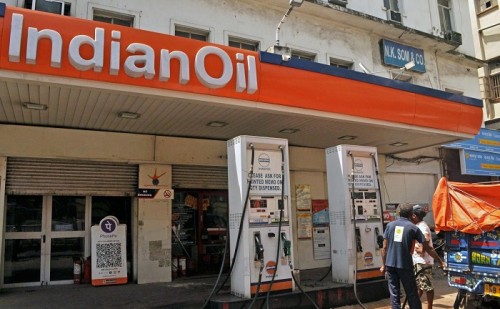Oil slips on China COVID curbs, weak factory activity data

Follow us Now on Telegram ! Get daily 10 - 12 important updates on Business, Finance and Investment. Join our Telegram Channel
Oil prices fell on Monday following weaker-than-expected factory activity data out of China and on concerns its widening COVID-19 curbs will curtail demand.
Brent crude futures dropped 63 cents, or 0.7%, to $95.14 a barrel by 0420 GMT, after slipping 1.2% on Friday.
U.S. West Texas Intermediate (WTI) crude was at $87.43 a barrel, down 47 cents, or 0.5%, after settling down 1.3% on Friday.
"The purchasing managers' index (PMI) data contracting adds to the post-China congress party blues for oil markets. It is not difficult to draw a straight line from weaker PMIs to China's COVID-zero policy," said Stephen Innes, managing partner of SPI Asset Management.
"So long as COVID-zero remains entrenched, it will continue to thwart oil bulls."
Factory activity in China, the world's largest crude importer, fell unexpectedly in October, an official survey showed on Monday, weighed down by softening global demand and strict COVID-19 restrictions that hit production.
Chinese cities are doubling down on Beijing's zero-COVID policy as outbreaks widen, dampening earlier hopes of a rebound in demand.
Strict COVID-19 curbs in China have dampened economic and business activity, curtailing oil demand. China's crude oil imports for the first three quarters of the year fell 4.3% from the same period a year earlier - the first annual decline for this period since at least 2014 - as Beijing's drastic COVID-19 curbs hit fuel consumption hard.
A further risk to oil demand comes from Europe, said CMC Markets analyst Leon Li, as the continent "is likely to enter a recession this winter", he said.
The euro zone is likely entering a recession with its October business activity contracting at the fastest in nearly two years, according to a S&P Global survey, as rising costs of living keeps consumers cautious and saps demand.
European Central Bank policymakers are also standing behind plans to keep raising interest rates, even if it pushes the bloc into recession and stirs political resentment.
Meanwhile, some of the largest U.S. oil producers on Friday signalled that productivity and volume gains in the Permian Basin - the nation's top shale field - are slowing.
The warnings came just as U.S. oil exports rose to a record last week, partly pushed WTI prices up 3.4%. Brent rose 2.4% last week, notching its second consecutive weekly gain.
In an outlook to be released on Monday, the Organization of the Petroleum Exporting Countries is expected to stick to a view of oil demand rising for another decade, despite increasing use of renewable energy and electric cars, two OPEC sources said.












 320-x-100_uti_gold.jpg" alt="Advertisement">
320-x-100_uti_gold.jpg" alt="Advertisement">









